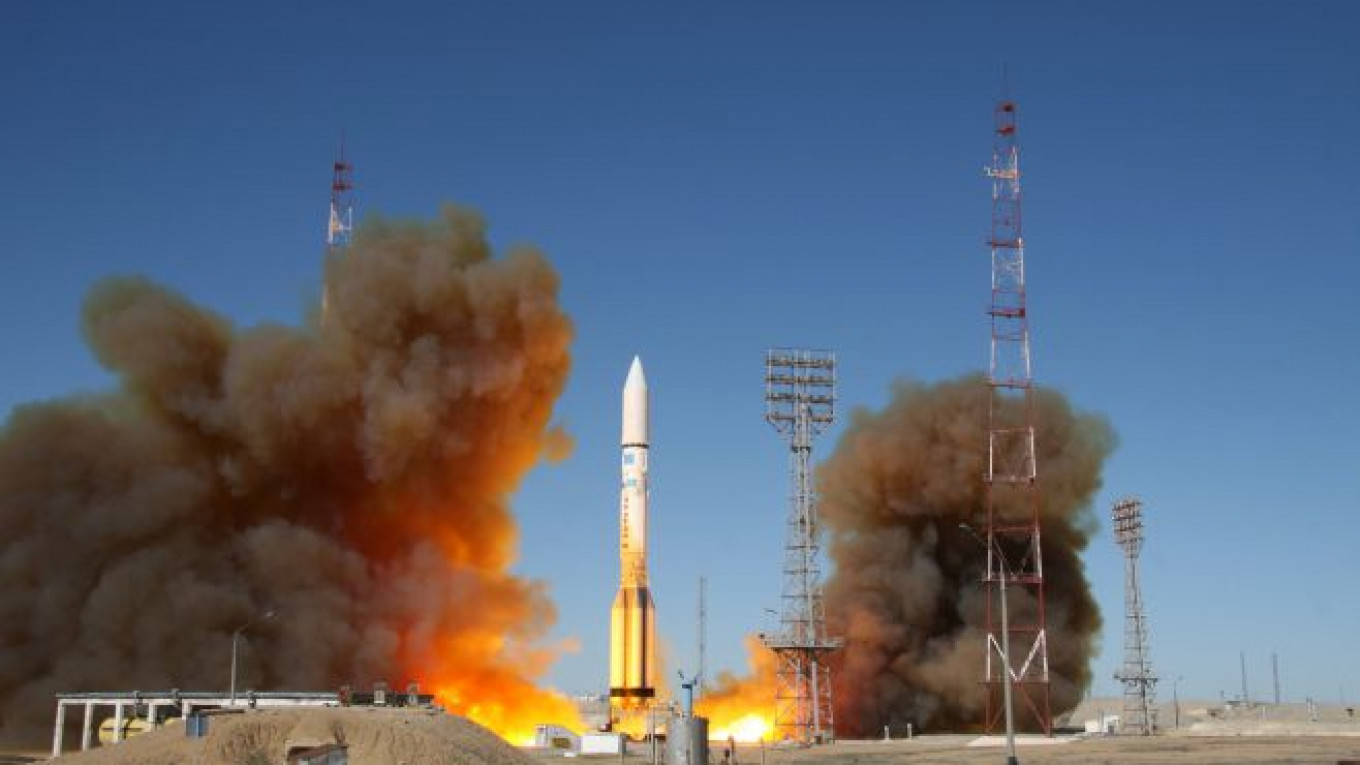Having virtually ignored the Moon since the 1970s, Russia's Federal Space Agency has requested 28 billion rubles ($770 million) from the government to finance its resurgent robotic Lunar exploration program as part of its proposal for a national space strategy through 2025, Interfax reported Wednesday.
In recent years, Russia has been dumping ever more money into its space program and surrounding industry in a bid to ensure that it remains one of the world's premier spacefaring nations. Russia's robotic space exploration program suffered disproportionately after the collapse of the Soviet Union, when money was only available to sustaining manned space operations and launch capabilities.
NASA's most recent robotic mission to the Moon, LADEE, cost $280 million overall. It is not clear if the Russian budget proposals include the full research and development costs — much of the hardware and research is rooted in the Soviet space program — as well as construction and launch costs.
The first lunar mission to be financed under the proposed Federal Space Program 2016-2025 is the Luna-Glob mission, which will cost 980 million rubles ($27 million) and be launched in 2019, Interfax said, citing a copy of the document. The probe, which will spend a year on the lunar surface, will set the stage for later missions by testing landing technologies.
In 2021 and 2023, the proposal envisions the launch of two Lunar orbiters, called Luna-Resource, followed by an additional two orbiters and two landers 2023 and 2025. This program will cost almost 15 billion rubles ($414 million).
Also in 2025, Roscosmos has requested 11 billion rubles ($303 million) to finance a mission to retrieve a sample of lunar soil and return it safely to Earth.
See also:
A Message from The Moscow Times:
Dear readers,
We are facing unprecedented challenges. Russia's Prosecutor General's Office has designated The Moscow Times as an "undesirable" organization, criminalizing our work and putting our staff at risk of prosecution. This follows our earlier unjust labeling as a "foreign agent."
These actions are direct attempts to silence independent journalism in Russia. The authorities claim our work "discredits the decisions of the Russian leadership." We see things differently: we strive to provide accurate, unbiased reporting on Russia.
We, the journalists of The Moscow Times, refuse to be silenced. But to continue our work, we need your help.
Your support, no matter how small, makes a world of difference. If you can, please support us monthly starting from just $2. It's quick to set up, and every contribution makes a significant impact.
By supporting The Moscow Times, you're defending open, independent journalism in the face of repression. Thank you for standing with us.
Remind me later.






